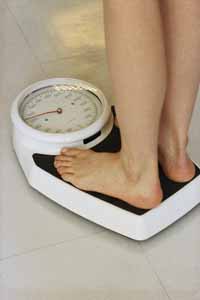Japanese diet-busters use their cell phone cameras to get expert advice
Wondering how much of a diet-buster that banana cream pie on your plate is? Some Japanese have a novel way to find out: Photograph it with your cell phone and send the image to an expert.

With cell phones ubiquitous in Japan and rising concern over expanding waistlines, health care providers have put two and two together to allow the calorie-conscious to send photos of their meals to nutritionists for analysis and recommendations.
Public health insurance offices in Osaka prefecture (state) in western Japan have launched the service on a trial basis. About 100 cardiac patients signed up in the first year, followed by diabetes and obesity patients in the second.
"Japanese have been getting fatter, especially men in their 20s and 30s, and there is concern over what they learned about nutrition when they were younger," Osaka official Satomi Onishi said. "We're hoping that this program can help us to get a handle on the problem."
Osaka is using a system developed by Asahi Kasei Corp., a Tokyo-based chemical and medical equipment manufacturer. The system is operating at about 150 health care providers and local governments around the country, company official Naoki Yoshimura said.
Nutritionists can work with photos from one day's meals to several weeks' worth, he said. Results come back in three days. Participants also can log onto a Web site to get further dietary information and upload photos from digital cameras.
Dr. Yutaka Kimura developed a similar system at Kansai Medical University's Hirakata Hospital, also in Osaka prefecture. Five patients participate in the program, which costs 4,500 yen (US$37; euro27) to join and 2,500 yen (US$21; euro16) per month thereafter. Patients photograph meals over the course of three to seven days, and a nutritionist e-mails back analysis and advice.
"Patients used to fill out meal logs, but people tend to forget things or underestimate their portions," Kimura said. "Photographing meals and e-mailing them in is easier and gets more accurate results."
The battle of the bulge is a growing obsession in Japan, a country that is slowly losing its reputation for low-calorie fish-and-rice diets and slim waistlines.
As Japanese have turned to bigger portions and more meat and fried foods, obesity and related illnesses such as high blood pressure have become a rising concern.
The Health Ministry estimated last year that more than half of Japanese men and about one in five women between 40 and 70 years of age - nearly 20 million people - were at risk of metabolic syndrome, a term for a cluster of conditions associated with obesity, high cholesterol and increased risk of heart disease and type 2 diabetes.
With the Health Ministry hoping to see a 25 percent reduction in the number of people at risk of metabolic syndrome by 2015, Osaka officials hope the cell phone program will help.
"Cell phones are everywhere here," Onishi said. "We're hoping they can now make it easier for people to get help improving their diet."
Subscribe to Pravda.Ru Telegram channel, Facebook, RSS!


